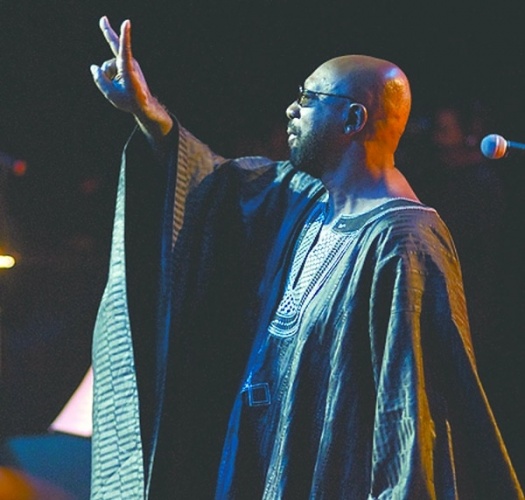
He was one of the most celebrated entertainers from Memphis to emerge from humble beginnings. But Isaac Hayes never forgot his roots–or his friends for that matter. From the cotton fields in Covington, Tenn., to his grandmother’s home in North Memph
He was one of the most celebrated entertainers from Memphis to emerge from humble beginnings. But Isaac Hayes never forgot his roots–or his friends for that matter.
From the cotton fields in Covington, Tenn., to his grandmother’s home in North Memphis to chart-topping hits, Hayes finally broke the chain of poverty and soon donned gold chains that represented his breakthrough to success.
He was indeed “Black Moses,” an iconoclastic symbol that showed Hayes as a leader in various fields of personal endeavor: singing, songwriting, producing, acting and humanitarianism. He started a long way from such heights, recalled one of his childhood friends.
“All of us were poor, but Isaac was very, very poor,” said James Phillips Jr., who lived around the corner from Hayes on Manassas Street, within walking distance from where they attended Manassas High School.
“He struggled more than the rest of us,” said Phillips, a disabled Vietnam veteran. “He didn’t have the necessities of life, like clothing and a good pair of shoes. He was really struggling.”
A terrible depression hit Phillips Sunday afternoon when he learned that his long-time friend and classmate had died at home.
“I thought about some of the things we did when we were teenagers,” he said. Phillips didn’t elaborate but recalled Hayes as a “cut-up.”
“All of us were,” he acknowledged. “But Isaac was not a good student because he was so obsessed with music. His studies were up and down.”
While Phillips focused on academics, Hayes lived and breathed music. “I knew he was something special from the 7th and 8th grade,” said Phillips, 64. “As children, we played together. But Isaac, once he got in the 7th and 8th grade, his interest turned to music.”
Phillips had tried playing the clarinet at Manassas but admitted he couldn’t hold a note to Hayes’ mastery of music.
“Nothing really amazed me about Isaac. I knew he was a gift from God,” said Phillips, vice president of the Manassas Alumni Association.
Phillips graduated in 1962 and joined the Air Force; Hayes graduated at 21 that year but had already cut a swath to Stax Records where he was making his mark as a session musician, songwriter and producer.
Hayes and songwriting partner David Porter reportedly collaborated on 200 songs; several of them sizzled on the charts. Sam and Dave (Hold On I’m Coming, Soul Man, and When Something Is Wrong With My Baby), Johnnie Taylor (I Had A Dream) and Carla Thomas (B-A-BY) largely owe their early success to Hayes and Porter.
Hayes catapulted to stardom with his second solo release called Hot Buttered Soul. That LP set Hayes apart from his colleagues, and Stax began revolving around its new star.
Overcome with grief, Porter was too emotional to respond to an interview request, said Tim Sampson, marketing manager for the Stax Museum of American Soul Music.
Larry Dodson, lead singer of the Bar-Kays, was shaken as well. Hayes, he said, was scheduled to appear in concert with Eddie Floyd, William Bell and the Bar-Kays at the Mann Center of Performing Arts in Philadelphia Aug. 14.
It would have been the first time the Bar-Kays and Hayes performed together since Stax’s 50th anniversary celebration in Memphis last June. “We never played that often,” Dodson said. “But we saw each other a lot.”
Dodson said he heard the news of Hayes’ death from bandmate James Alexander, the only surviving member of the original Bar-Kays. Alexander was not onboard the plane with Otis Redding that crashed in Lake Monona in 1967.
Alexander is a very good friend of Hayes’ and he’s distraught, said Dodson. “The Bar-Kays were fortunate to be there with him in his shadows. We toured with him in the early days in the ’70s and played behind him on Shaft and the Hot Buttered Soul LP.
“It was shocking to me. But I’m not one to question God’s will. It’s a big, big loss to the world. I’m glad to have known him and having the Bar-Kays be a part of his great records.”
During recording sessions, Hayes was always a little late, Dodson said. “He wasn’t regimented. But everyone knew there would be magic afterward.”
The magic for Erma L. Clanton started after Hayes brought home the Oscar for Shaft, a much-heralded movie score that the maestro of soul turned into gold.
“Isaac was receiving his (award) and asked to meet me,” said Clanton, who founded An Evening of Soul musical showcase in 1971 on the campus of Memphis State University (now the University of Memphis).
Clanton said she founded the showcase for Black students who didn’t have a way to express their talent in blues, gospel, R&B–and even protest.
Hayes wanted to be a part of the popular venue, said Clanton, a former faculty member in the Communication and Fine Arts department. “He came to the university and saw the show three times.”
After the news of Hayes’ death broke, Clanton said she remembered a conversation she had with his wife, Adjowa, some time ago.
“She told me, ‘When he gets old or when he gets sick, I want to be there to rub his feet, to take care of him.’”
Adjowa was there until the end.
Copyright 2008 Chicago Defender. All rights reserved. This material may not be published, broadcast, rewritten, or redistributed.